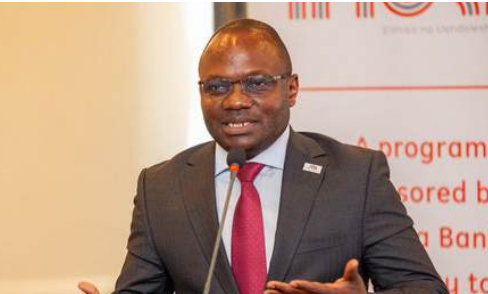Kenya’s median age is 20, according to the United Nations Human Development Report 2025, meaning that the average citizen is closer to high school than retirement; closer to TikTok than television. This reality poses both an opportunity and a challenge for the insurance industry.
For decades, insurance products have been built around traditional life stages. Saving for school fees, planning for children, or patiently waiting for a pension 30 years down the line.
The uncomfortable truth is that the industry is still largely speaking to yesterday’s customer while tomorrow’s customer has already moved on. Globally, Generation Z—born between 1997 and 2012— makes up roughly 25% of the world’s population, with over 2.4 billion people.
As true digital natives, they are reshaping consumer markets, employment trends, and cultural norms worldwide.
Gen Z represents a powerful consumer force. Their global spending power was estimated at over $450 billion in 2023 and is projected to reach $12 trillion by 2030. Across the financial sector, companies are revamping offerings to be digital-first, more personalised, and better aligned with this generation’s needs.
For insurers, this is an exciting call to innovate. This is a generation that treats a phone or a laptop with more care than a family heirloom. Their most prized asset may not even be physical objects, but digital identities and online followers.
This means that while traditional products like education plans, retirement savings, and annuities remain important, there is also room to expand into protections that fit more immediate and diverse realities.
Gen Z does not want to sit across from an insurance agent who explains benefits in dense jargon. They would rather pull out their phone, compare options, and decide for themselves. They are sceptical of institutions, unimpressed by promises that take decades to materialize, and very alert to fine print. They demand transparency, flexibility, and value they can feel today, not in 2057.
The numbers underscore this reality. According to the Old Mutual Financial Services Monitor 2024 report, 78% of Gen Zs rely on a single source of income, while 22% juggle multiple jobs, many drawn to self-employment and side hustles. Despite earning more than they did a year ago, most still sit in the lowest income bracket, with 70% taking home between Sh12,001 and Sh20,000 per month.
Nearly a quarter have fallen behind on rent, and half worry about their debt. In such a context, a 30-year retirement or savings policy is a hard sell. What they need are bite-sized, affordable protections that match their immediate realities.
Imagine a policy that covers a gadget while doubling as an emergency fund, a health micro-covers bundled with lifestyle services savings like a streaming subscription or a mobile data plan. Embedding insurance into the places Gen Z already spends time and money could open new pathways to relevance.
Equally important are the distribution channels. Insurers must rethink how they sell it. That means digital-first experiences, where onboarding is as easy as signing up for a social app. It means real-time claims tracking, clear timelines, and zero surprises.
It also means contracts written in plain language, understandable without a law degree. Most of all, it means a cultural shift, moving away from treating customers as policy numbers to treating them as empowered partners.
Trust is also a hurdle that must be quickly crossed. According to the OMFSM Report, at least 72% of Gen Zs say they want financial institutions to provide tools, calculators, and learning resources to help them make informed decisions. Yet only one in 10 has a financial advisor, and many admit they are not confident in their ability to save or invest.
Insurers who step into this education gap with digital-first engagement will earn the trust and loyalty of Gen Z.
Kenya has always been a pioneer in financial innovation. With supportive regulation, including sandboxes for testing new models and clear frameworks for digital distribution of micro-covers, Kenya’s insurance sector can lead the continent in creating the products that reflect the aspirations of a young, connected, and forward-looking population.
Gen Z is not a niche segment anymore; they are the mainstream. The future of insurance in Kenya will not be written only in boardrooms; it will be written on the screens of Gen Z. Our work as the industry is to meet them there.
by EVANS MANDUKU












